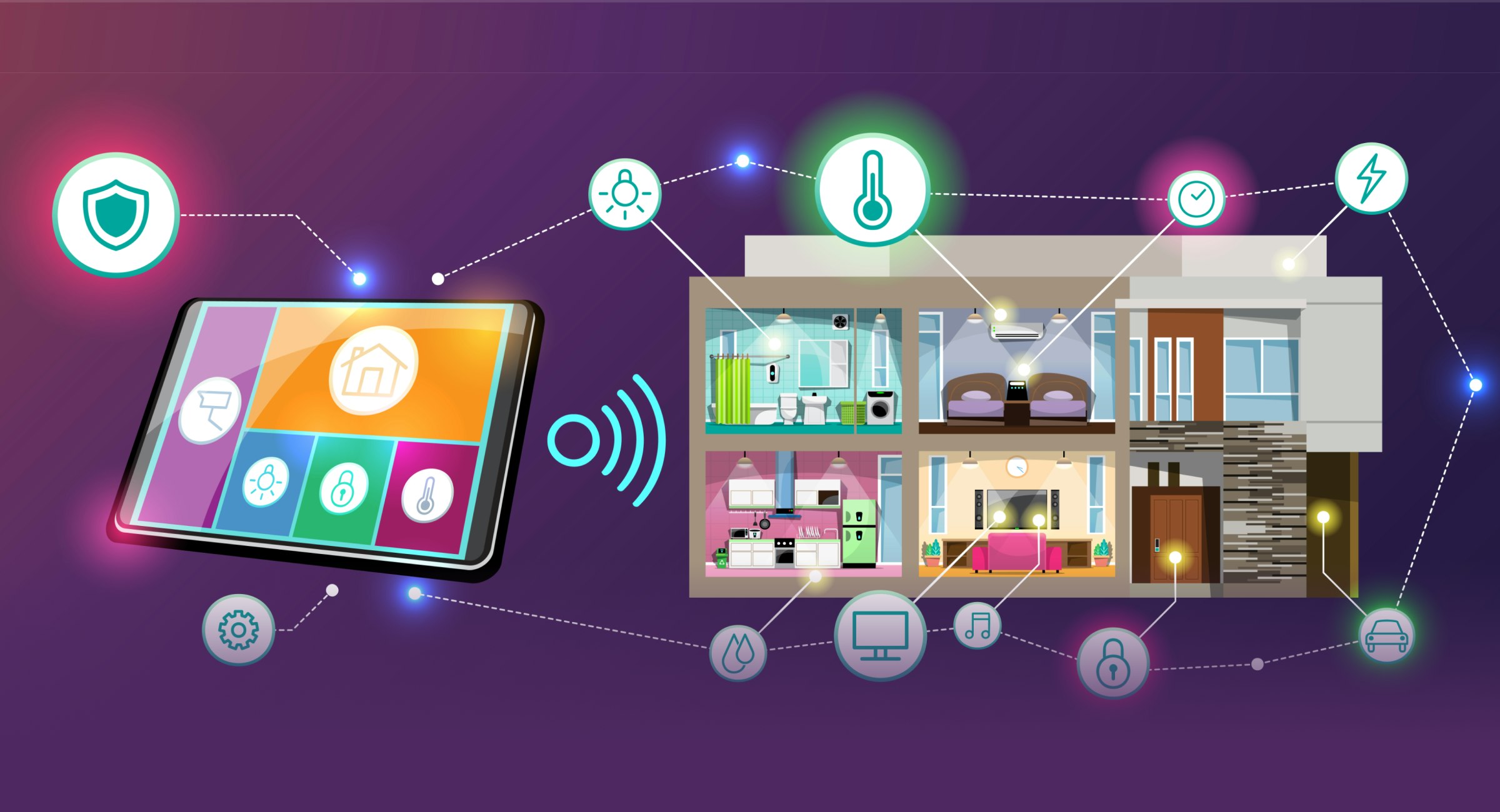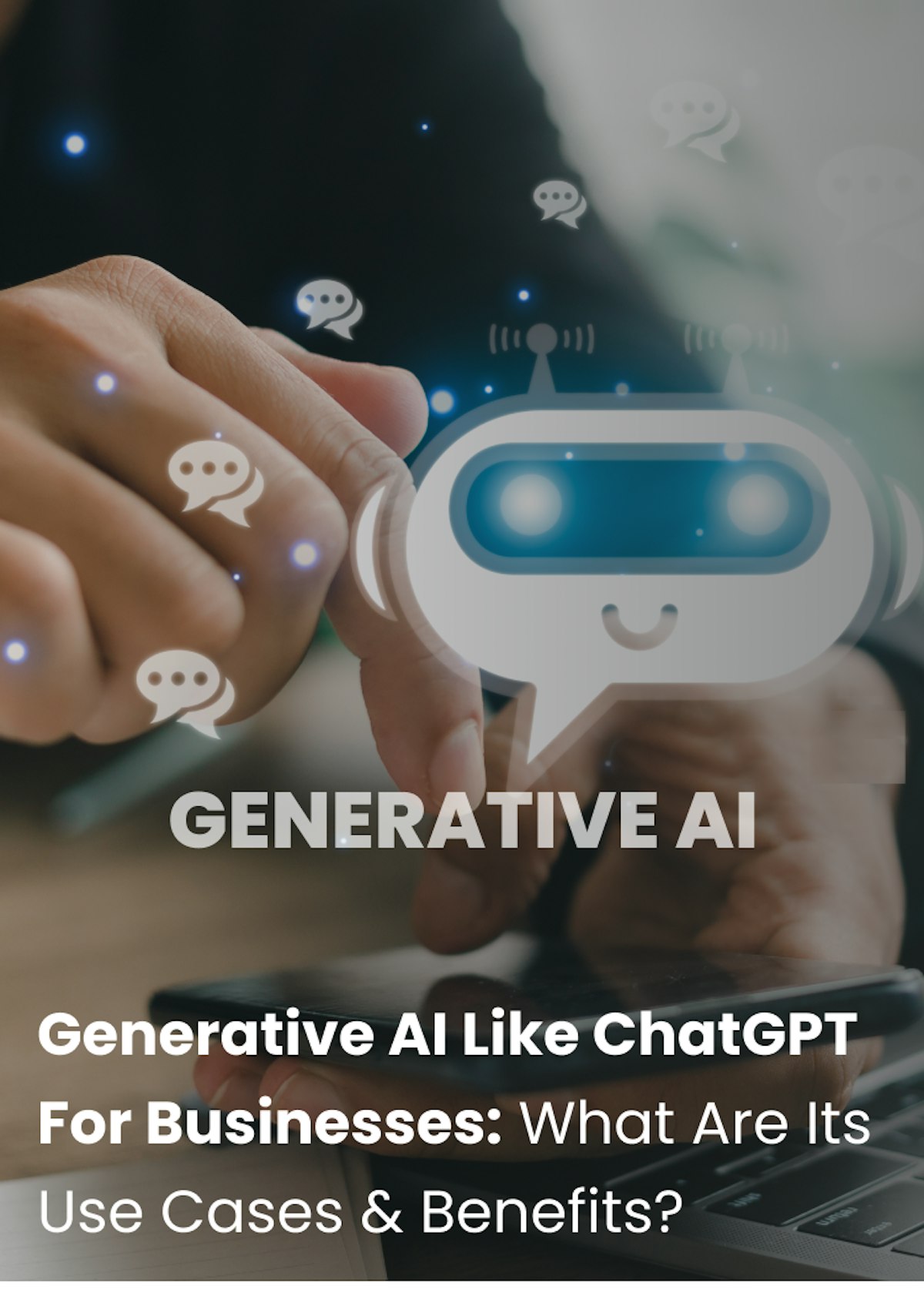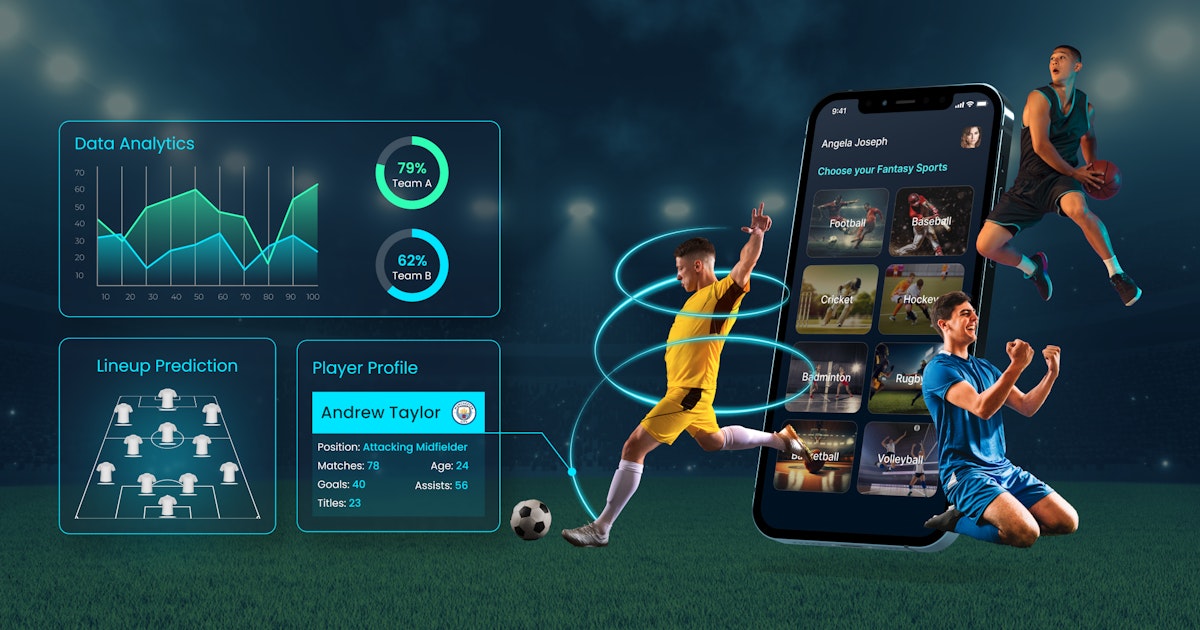Table of Content
The AI-integrated real estate market value is expected to cross $1335.89 billion by 2029 in the US alone.
Plus, the generative AI segment in real estate is expected to reach $1047 million by 2032. These two statistics demonstrate the importance and effectiveness of AI in the real estate industry.
Within real estate, AI-based smart home systems are being conceptualized at a fast pace. With benefits like energy efficiency, power bill reduction, automation convenience, and higher security, the number of smart homes is increasing.
AI and generative AI benefits the sellers and the buyers in different ways. Today our focus will be on AI-based smart home ecosystem, their convenience, and future prospects.
What is an AI-powered Smart Home?
AI smart home refers to a residence equipped with devices and systems that use artificial intelligence (AI) to control and automate things like lights, heating, security, and appliances.
These smart-systems learn your habits and preferences, making your home more convenient, energy-efficient, and secure by automatically adjusting to your needs. You can control these systems using your voice, or smartphone, or even have them work on their own.
Devices like smart speakers, thermostats, robots, and ambient motion sensors are making our homes come alive and adjusting the settings according to our choices.
The best part is that we benefit from energy efficiency, which means lower power bills and a more environmentally friendly home. Let’s explore how AI is driving home automation.
Why Builders Should Invest in AI Smart Homes
The global number of smart homes is projected to grow by 117.69% between 2023 and 2028, reaching 424.5 million users.- Statista
Investing in AI smart home technology is no longer a luxury but a necessity for builders looking to future-proof their projects.
These homes are equipped to adapt to technological advancements, ensuring long-term property value and market appeal while meeting the needs of tech-savvy buyers.
Key reasons to invest in AI smart homes
- AI-enabled smart homes command higher prices and attract premium buyers.
- Automated energy management systems reduce utility costs, making properties more sustainable.
- AI-powered security features like facial recognition and smart monitoring provide peace of mind to residents.
- Adaptable infrastructure ensures compatibility with emerging technologies, reducing retrofit costs.
- Stand out in the competitive real estate market by offering innovative, AI-driven solutions.
Application of AI Smart Home Automation
Automation is one of the best parts of AI smart homes. With AI continuously learning more about the resident’s choices and preferences, it can automate how all the appliances work to make the lives of homeowners or residents easier.
1. Optimized energy consumption with smart lighting
AI-powered smart lighting gives better control and flexibility. The remote control capabilities give a new dimension to lighting design, installation, and utilization.
In addition to remote control options, where users can toggle the lights from a distant location to save energy costs, AI can also bring self-learning networks to lighting.
As a result, AI-powered homes can optimize energy consumption because the same principle applies to all smart appliances.
Moreover, when connected to a renewable energy supply system like solar panels, homeowners can further achieve better energy efficiency.
AI-powered lights have built-in security features. These include detection, camera, voice recognition, etc. Moreover, some smart lights have a vacation mode randomly. The lights turn on and off randomly, inhibiting burglars from seeking a pattern.
2. NLP-based smart human voice assistants
Voice assistants leverage natural language processing to understand human voice commands and respond accordingly. These devices can be interlinked with the appliances and devices in the home through a common WiFi network.
Thus it gives seamless and no-touch control to manage the usage of the appliances and devices in the house.
Voice assistants like Google Assistant and Alexa can become your ultimate home control correspondent.
You can connect all the devices through an application and control every aspect of your home. Everything will be based on your voice commands, from unfurling the curtains to switching on the heat or cooling system to toggling the lights and opening the gates.
3. Smart locks and biometric entry
Smart homes have biometric entry systems wherein, the residents' fingerprints faces, or both are used to open the doors. Then, we can have smart locks that also open with fingerprints, voice, or face. These systems have built-in security features to log every unsuccessful attempt to open the door or lock.
4. Smart thermostats and energy savings
The heating and cooling systems in our houses take the major chunk of energy bills. AI-optimized climate control technology uses AI algorithms to learn the user behavior and fine-tune the settings. This way, the utilization of the heating and cooling is reduced.
5. AI-powered home maintenance
AI can predict when home appliances like refrigerators, washing machines, or HVAC systems are likely to fail, allowing homeowners to address issues before they become major problems.
AI predicts based on data collected from sensors embedded in these devices, tracking parameters like temperature, vibration, energy consumption, and operating efficiency.
6. Health and wellness monitoring
AI-enabled multi-functional beds can track health metrics such as sleep patterns, heart rate, and even air quality in the home. Smart beds and mattresses can adjust firmness based on your sleep patterns, and air purifiers can activate automatically when air quality drops.
Moreover, AI senses the presence of people in the room and adjusts the settings accordingly. It can also know when a room is empty and cut off the heating or cooling supply, thereby reducing energy consumption.
Key Features of AI Smart Homes
Smart homes have AI-enabled devices connecting to a central command system through a common WiFi network. The commands travel in wavelengths through the wireless network and instruct the device requested to perform the desired function.
Such voice-activated devices and appliances are plenty in a smart home. Here are a few other features of smart homes;
1. Lower energy bills
In the UK, AI-powered smart homes can save up to £2.5 billion by 2030. When AI is integrated into a house, it reads, understands, and adjusts the usage of all the appliances connected to it. From changing the light brightness to toggling the HVAC systems to monitoring every unit of energy consumed, AI helps save energy bills.
2. Enhanced residential security
AI-enabled cameras can identify the residents of a house and built-in sensors can detect the presence of an individual. It can send real-time alerts in case of intrusions or when an unusual activity is detected.
It may sound scary, but the same system proves to be beneficial when the same AI system provides access control through face, biometric, and retinal scans. These systems can also predict potential security threats and start recording.
3. Smart home lighting
Smart homes have centrally controlled lighting systems controllable through voice, remote, and mobile applications. Smart lighting can be customized according to the usage pattern of every area of the home. The same lights are an interface for speakers and heating systems.
4. Intelligent detection system
Homes built on automation and AI technologies have predictive abilities and robust detection systems. They can detect water leakage in pipes fitted inside the walls, gas from within the house, and electric circuit anomalies.
Upon detection, the homeowners will receive notifications about the leakage. Moreover, the AI systems can also pause gas, water, and electricity supply to control the damage.
Access to these benefits gives the residents peace of mind and streamlines how they control every aspect of their houses. While energy savings are a significant benefit that homeowners enjoy, AI-powered smart homes have a better quality of life and convenience.
AI automates the majority of tasks one has to do every day. On top of this, AI optimizes those tasks according to the individual's routine and preferences. It personalizes the way we live in our homes.
From recording all sorts of breach attempts with smart cameras, AI also provides intrusion detection benefits. While everything in AI smart home ecosystem is great, we cannot ignore the privacy concerns and AI bias and discrimination.
Where companies manufacture systems to improve our lives, they also have an ethical implication to address all privacy issues.
If someone cannot break into our homes through the door, they shouldn’t be able to break into our lives through the data collected by AI systems.
10 Best AI Smart Home Devices
AI-powered home devices are smart gadgets integrated with artificial intelligence to enhance automation, convenience, and efficiency in households. Here are some popular AI-powered home devices:
- Smart speakers - Devices like Amazon Echo (with Alexa), Google Nest (with Google Assistant), and Apple HomePod (with Siri) allow voice control for various home functions, including playing music, controlling smart devices, and providing weather updates.
- Smart thermostats - AI-driven thermostats like Nest and Ecobee learn your temperature preferences and daily schedule to optimize heating and cooling, reducing energy consumption and costs.
- Smart security cameras - Cameras like Arlo and Ring use AI to differentiate between humans, animals, and objects, sending relevant alerts to homeowners and minimizing false alarms.
- Robot vacuums - Devices like iRobot Roomba and Neato use AI for efficient cleaning patterns, obstacle detection, and even mapping out home layouts for optimized vacuuming.
- Smart lighting systems - Philips Hue and LIFX lights use AI to adjust brightness and color based on time of day, natural light, or user preferences, enhancing comfort and energy efficiency.
- Smart refrigerators - Brands like Samsung and LG offer AI-powered fridges that track food inventory, suggest recipes based on available ingredients, and help reduce food waste by alerting users about expiration dates.
- AI-Powered Doorbells - Devices like the Ring Video Doorbell use AI to detect and notify homeowners of visitors or potential intruders, enhancing home security.
- Smart Home Hubs - Systems like Samsung SmartThings and Apple HomeKit centralize control of various smart devices, using AI to automate and optimize home functions.
- Smart Irrigation Systems - Devices like Rachio use AI to monitor weather conditions and soil moisture, adjusting watering schedules to conserve water and maintain healthy gardens.
- Smart beds and mattresses - Products like Sleep Number 360 use AI to monitor sleep patterns and automatically adjust mattress firmness for improved sleep quality.
These devices work together to create a more intelligent, responsive, and energy-efficient living spaces, enhancing both comfort and security in the home.
How to Integrate AI for Your Smart Home
Here are the key steps to integrate AI in a smart home:
- Define objectives - Identify what you want to achieve with AI in your smart home, such as energy efficiency, security, or convenience. This will guide your selection of devices and AI applications.
- Choose compatible devices - Select smart devices (thermostats, lights, security cameras) that support AI integration and are compatible with your home automation system.
- Install a central hub - Set up a central hub or platform (like Google Home, Amazon Alexa, or Apple HomeKit) to manage and control various smart devices through AI.
- Connect devices to a hub - Integrate your smart devices with the central hub using Wi-Fi, Zigbee, or Z-Wave protocols, ensuring seamless communication between devices.
- Implement machine learning - Allow your AI algorithm to learn from your habits and preferences over time, adjusting settings automatically for optimal comfort and efficiency.
- Set up voice assistants - Integrate AI-driven voice assistants (like Alexa or Google Assistant) to control devices and execute commands through voice recognition.
- Configure automation rules - Create automation rules and scenarios based on AI insights, such as scheduling lights to turn off when no one is home or adjusting the thermostat based on weather forecasts.
- Regular updates and maintenance - Keep your AI systems and smart devices updated with the latest software to improve functionality and security.
Future Trends of AI in Smart Homes
AI can not control our homes and through this control, it is making our lives better. If you are thinking that we have reached the apex of AI’s integration into our homes, think again.
Many new developments are coming ashore to improve, modify, and alter the benefits or services we are enjoying today. Let’s find out what more these smart technologies have to offer.
1. Use of blockchain in real estate
Blockchain technology can be used to authenticate and execute smart contracts, track payments, and take note of all real estate transactions.
With blockchain technology taking care of the contracting, leasing, and other management functions, real estate can finally be free of intermediaries and brokers.
Owners and sellers can take where the former can list properties, and the technology can improve the property search process.
Moreover, with this technology, we can streamline the documentation process. This will become a significant improvement to the current paper-based documentation, which is susceptible to fraud, misrepresentation, and loss. But with every property record submitted to the blockchain, it cannot be changed or altered.
The distributed ledger technology allows the leases to be signed on execution and payments on the chain. Overall, blockchain technology is going to make the real estate and especially the commercial real estate (CRE) industry better.
2. Robots-assisted homes
The smart homes of the future will be incomplete without robots assisting humans in doing the chores. These human-like robots will make our lives easier, more efficient, and more convenient. They can clean homes, maintain the garden, help with cooking, and much more.
We are already observing limited examples of machines taking care of the house, especially robot vacuum cleaners. Around 39% of the houses in the next decade in the US will have automation and robotics integrated.
3. Privacy and confidentiality
Here again, we want to bring your focus to the ethical implications of all these developments. When AI takes control of your home, and robots see and understand everything, who are they sending this information to?
Ethically speaking, we still need to think about our privacy and the possible vulnerabilities of these systems. Improper and sensitive personal data can be collected, making it susceptible to data abuse.
Future smart homeowners must be aware of CIA (Confidentiality, Integrity, and Availability) for data protection. Confidentiality is protecting data from unauthorized access.
Data integrity means preventing anyone from arbitrary changes during storage and processes. Plus, only legitimate owners must be able to avail of this data.
Real-Life Example: How a Real Estate Company Leveraged AI
One standout example is Lennar Corporation, a leading homebuilder in the U.S., which has integrated AI to revolutionize its smart home solutions. By integrating AI-powered home automation systems, Lennar offers properties equipped with:
- Ring video doorbells for enhanced security.
- Schlage encodes smart locks for secure and keyless entry.
- Honeywell Pro series smart thermostats for precise temperature control.
- With Amazon Alexa integration, residents can easily adjust lighting, lock doors, and manage the temperature using voice commands.
- Designed with Wi-Fi CERTIFIED home design, these homes ensure seamless whole-home connectivity and reliable internet coverage without dead zones.
How Intuz Can Assist with Your Smart Home AI Projects
Intuz, a leading AI application development company, specializes in creating innovative, tailored solutions for real estate companies looking to integrate AI smart home technology.
Why partner with intuz?
- Custom AI solutions: Develop intelligent AI apps for seamless control of smart lighting, climate, security, and appliances.
- IoT integration expertise: Ensure flawless connectivity between devices for enhanced home automation.
- Scalable platforms: Build future-proof systems that adapt to emerging technologies.
- Data-driven insights: Use predictive analytics to understand home usage patterns and improve property value.
A Leading AI Development Services Company
Explore ServicesConclusion
Integrating AI in the real estate industry and creating smart home development has already started. With new technologies and systems emerging, homeowners must understand the technology, system, and its implications.
Where the real estate industry is on a growth trajectory with the help of AI, a smart approach would be to tread carefully and get expert help for better understanding.
Are you a real estate developer ready to revolutionize your projects with smart home automation?
Book Your Free 45-minute Consultation with Our AI Experts Now!
During this personalized session, our team will provide:
AI readiness assessment for your real estate projects
Strategies to enhance resident experiences with AI-powered amenities
Customized AI implementation roadmap to future-proof your smart homes






